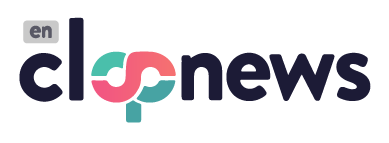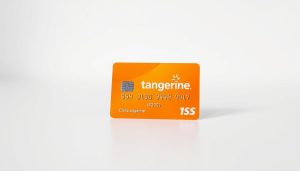Could a single ethical payment option change how someone spends, saves, and shops in a digital-first country?
The guide opens with a clear look at how a Triodos Bank credit card fits local banking habits. It speaks to readers who use mobile apps, rely on debit for daily buys, and prefer online tools like iDEAL for e-commerce.
Readers will see how an extra credit product can help with travel bookings and larger purchases while an account and debit setup still handle most in-store payments. The introduction also frames the bank’s sustainability stance for people who want impact with their money.
The short overview previews pricing, eligibility, and the practical protections that matter in modern banking. It points to how digital account management, app alerts, and sensible fraud steps support everyday use.
Why credit cards are different in the Netherlands
Everyday transactions in this country rely on fast bank-to-bank payments and a debit-first mindset. Supermarkets and small shops commonly accept debit cards, while revolving payment options remain a niche for larger or international purchases.
Online, instant transfers dominate e-commerce and many shops prefer electronic payments over cash. ABN AMRO’s Tikkie shows how peer-to-peer requests fit daily life and make splitting money simple.
Travelers should note that credit cards are often used for bookings, car rentals, and some international buys, but not every merchant will accept them. Digital providers such as bunq and established dutch banks push strong mobile apps and instant alerts, so managing accounts feels immediate.
Newcomers benefit from a mixed approach: let debit cover daily buys and keep a credit option for travel and protected online purchases. This keeps surprises low and payments predictable across the country.
Meet Triodos Bank: ethical banking with Dutch roots
Originating in the country, this purpose-driven lender turns customer savings into real-world projects. It channels deposits into renewable energy, sustainable farming, and cultural initiatives that people can trace.
The institution sits among ethical banks known for transparency about where money goes. Customers get familiar account and card services while also seeing how capital supports the real economy.
Ethical banking here uses clear screening and lending criteria. That means financing choices favor solar projects, organic agriculture, and arts programs over conventional investments.
Despite its strong mission, the bank operates in the regulated market like other providers. It offers modern digital services, easy app access, and customer support intended to match local payment habits.
For savers and everyday users, this approach links practical banking to impact. People who want values-aligned finance can find a simple way to match daily money management with longer-term social and environmental goals.
Triodos Bank credit card Netherlands costs security features
Many customers treat an ethical credit option as a backup for travel and online purchases rather than daily use.
As an ethical provider, the issuer positions this product to complement a primary account and debit setup. Shoppers should expect transparency about any annual or monthly fees and clearly stated limits.
Key costs to review include annual fees, foreign exchange markups, cash advance charges, and replacement fees. Feature comparisons should focus on purchase protection, extended warranties, travel coverage, and digital controls like spending caps and instant freeze.
Dutch banks rely on secure PINs, one‑time passwords, and encrypted sessions for online access. Given selective merchant acceptance, the product works best alongside a debit option for everyday transactions.
Responsible use matches the ethical narrative: pay statements on time, avoid unnecessary interest, and use protections to manage risk. Compare services and benefits carefully to ensure any fees are justified by the coverage provided.
Pricing and fees: what this card could cost you
Knowing typical charges up front prevents surprises when using an ethical payment product at home or abroad. Dutch providers often levy a monthly maintenance fee or an annual card fee tied to an account package.
Foreign currency purchases generally include a percentage markup on the exchange rate. Some banks add a small per-transaction fee too, which raises the effective price when spending money overseas.
Cash advances at an atm are usually expensive. They often carry an immediate interest charge plus a flat fee, so planning ahead avoids pricey withdrawals.
Replacement cards, expedited delivery, and paper statements can push the total higher. Compare published rates and the full fee schedule before committing to a bundled package.
Occasional users may prefer a low-fee setup, while frequent travelers might accept higher periodic charges for stronger protections. Review how often one will use atm withdrawals on credit, since use atm costs add up fast.
Eligibility and how to apply in the Netherlands
Applying for a new account in the Netherlands is straightforward when applicants bring the right documents. Most banks require a valid ID, proof of Dutch address, and a BSN number to complete verification.
Some providers let customers open bank account relationships before a BSN is issued, but finishing the setup usually needs that number. Non‑EU residents often must show a residence permit or additional paperwork for full account services.
Onboarding happens in a branch, online, or via a mobile app. Identity checks follow strict Dutch rules to prevent fraud, and many banks use video or in‑person verification as part of the process.
Applying for a credit product triggers a creditworthiness assessment. Lenders set responsible limits that match income and spending to reduce risk for both parties.
Practical steps: open account first if new to the country, confirm required documents on the specific bank services page, submit the BSN when requested, and after approval activate the card, set a PIN, and turn on app alerts for daily use.
Core benefits: where the Triodos credit card shines
This ethical credit product pairs practical protections with values-driven lending to give buyers added confidence.
Standard consumer protections often include purchase protection and extended warranty insurance that help when items are damaged or delayed. Travelers also gain from card-linked conveniences like rental holds and smoother hotel check-ins.
Digital controls — instant alerts, virtual numbers, and the ability to freeze a card — make daily use safer and simpler. These tools help customers stick to budgets and spot unusual activity quickly.
Beyond direct perks, the ethical approach means deposits and lending support renewable energy and cultural projects. That alignment makes routine spending feel more purposeful for many account holders.
Users who avoid revolving balances can pay in full each month to keep borrowing interest low while keeping access to protections and travel insurance. Clear disclosures and helpful customer services make filing claims and handling disputes easier.
Pairing this credit product with a main account brings convenience: consolidated statements, unified alerts, and streamlined service handling from the same provider.
Security features you can rely on today
Modern authentication tools help people stay in control of their money with minimal fuss.
Banks deploy layered defenses: encrypted sessions, strong PINs, and one‑time passwords to protect sensitive actions on an account. These measures make it much harder for attackers to intercept transactions or change details in online services.
Enable app alerts for every authorization and check transactions often. Instant notifications help spot odd payments quickly and reduce the window for fraud to grow.
Phishing via email, SMS, or messaging apps has risen. Users should never click unexpected links and must verify messages directly through official bank channels before sharing details.
If a payment instrument is lost or stolen, block it immediately through the app or hotline. A replacement usually arrives within a few working days, limiting exposure to fraudulent use.
Extra controls — geolocation locks, online‑only numbers, and spending caps — add day‑to‑day protection without sacrificing convenience. Using 3‑D Secure and strong customer authentication further shields online purchases.
Good habits matter: keep personal data private and avoid public Wi‑Fi for sensitive tasks. Technical defenses work best when customers act cautiously too.
*You will stay on the same site.
Daily use in the Netherlands: payments, iDEAL, and contactless
Most Dutch shoppers reach for a debit option first, reserving other payment methods for special cases.
For day-to-day shopping a debit card is the default in shops, cafés, and local markets. Contactless payments via phones and wearables speed checkouts and cut the need to handle cash.
Online, iDEAL moves money straight between accounts. It simplifies e-commerce but does not offer chargebacks like many card schemes, so buyers should choose the right payment method for higher-risk purchases.
Some merchants still prefer not to accept credit cards, so keeping a linked debit and a separate credit product for travel or rentals makes sense. Travelers also keep a credit option handy for deposits and bookings.
Many people rely on apps from providers such as abn amro and bunq for instant alerts, budgeting, and quick transfers. Cash is fading: users may use atm machines less often, and some atm sites close overnight for safety.
In practice, a smart setup pairs debit for routine payments and a credit option for specific needs. That mix helps control fees and ensures broad acceptance while keeping everyday money management simple.
Managing your account: app, online banking, and customer service
Good access to online banking turns routine tasks like transfers and freezes into quick, secure steps. Most customers use a mobile app to check balances, set alerts, and approve payments within seconds.
The app provides real‑time notifications for every authorization, making it easier to spot unusual activity and start a dispute fast. Users can change limits, freeze or unfreeze a card, and adjust contactless thresholds without visiting a branch.
Domestic SEPA transfers and international payments sit in the same interface with clear fee disclosures. Biometric sign‑in and two‑factor authentication reduce login risk, and session timeouts protect shared devices.
Customer service is reachable by chat or phone for urgent help. Support teams can block a lost card and arrange a replacement, usually within four to five working days, and help with fraud claims or usage questions.
Budgeting tools, categorized statements, and travel notices add convenience. Keep the app updated and confirm contact details to ensure timely alerts and smooth access to all bank services.
Alternatives to consider if a Triodos credit card isn’t the best fit
Comparing providers helps people match banking habits with the right mix of app tools and branch access.
Large incumbents such as ABN AMRO, ING, and Rabobank offer wide branch networks and bundled account packages where a credit option often adds on top. ABN AMRO is popular with expats for English support and a broad suite of services.
Digital-first providers like bunq, N26, and Revolut focus on fast onboarding and strong mobile tools. bunq’s packages include multi‑card tiers and EasySavings, which can pair a flexible savings account with advanced app controls.
For an ethical alternative, ASN provides mission‑aligned services similar to other impact-focused lenders. Customers should compare total monthly fees, card charges, acceptance, and the value of alerts, budgeting, and virtual numbers.
A practical strategy blends a main account with a dedicated savings account to balance returns and convenience. Check published rates, customer support, and the full set of options before switching providers.
Make your choice with confidence: matching costs, benefits, and security to your needs
Weigh practical savings and travel needs to choose the right mix of accounts and payment tools at home and abroad.
Start by listing where most spending happens: local daily buys or occasional trips. If day‑to‑day is debit‑first, a debit card plus a selective credit option may cover needs in this country.
Compare total fees for a bank account bundle versus standalone pricing, including foreign exchange and ATM charges. Check insurance benefits, online banking and app features before you open bank account relationships.
Confirm required documents—ID, proof of address and a BSN number—so onboarding goes smoothly. When ready to open bank, set up account controls, test customer service and lock in the settings that fit your home routine and travel plans.



